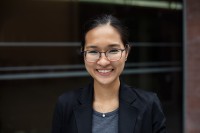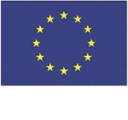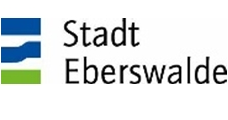Interlinkages among biodiversity, water, food and health: Prof. Matias selected as lead author in intergovernmental panel

Prof. Margaret S. Matias, © HNEE, Florian Reischauer
Denise Margaret S. Matias, professor at the Eberswalde University for Sustainable Development (HNEE) working at the Biosphere Reserves Institute (BRI) has been selected as a lead author for the Nexus Assessment of the Intergovernmental Science-Policy Platform on Biodiversity and Ecosystem Services (IPBES).
The Nexus Assessment is a new work programme that will provide policy-relevant knowledge to decision-makers about the interlinkages among biodiversity, water, food and health. Following three years of writing, and at least two public rounds of expert peer review, the Nexus Assessment is expected to be considered by representatives of the almost 140 member States of IPBES in 2024 ‚Äď at the eleventh session of the IPBES Plenary.
Prof. Matias, HNEE professor for ecosystem-based transformation management in UNESCO Biosphere Reserves is also a Fellow of the ongoing IPBES thematic assessment on sustainable use of wild species. She was nominated to both assessments by the non-government organization NTFP-EP Asia, which works with indigenous communities all over Asia in developing forest-based livelihood opportunities that are compatible with conservation.
Prof. Matias foresees her work on sustainability of Biosphere Reserves as instrumental to her contribution to the Nexus Assessment. ‚ÄúUNESCO Biosphere Reserves, as living laboratories of sustainable development, can serve as best practice cases to the Nexus Assessment and provide a foundation for visions of a sustainable future,‚ÄĚ said Prof. Matias.
Further information about the Nexus Assessment can be found here.
About IPBES:
IPBES is an independent intergovernmental body comprising almost 140 member Governments. Established by Governments in 2012, it provides policymakers with objective scientific assessments about the state of knowledge regarding the planet’s biodiversity, ecosystems and the contributions they make to people, as well as the tools and methods to protect and sustainably use these vital natural assets. For more information about IPBES and its assessments visit www.ipbes.net
Contact
Prof. Denise Margaret S. Matias
Professor for ecosystem-based transformation management in UNESCO Biosphere Reserves
denise.matias@hnee.de
Press contact
Corinna Hartwig
Science communication
Phone: +49 3334 657-227
presse@hnee.de
About Eberswalde University for Sustainable Development (HNEE)
Connecting with Nature for the benefit of Humans.
EUSD is a nationally and internationally active impulse generator for sustainable development. Around 2,300 students from 57 countries study and more than 350 employees research, teach and work at the university in the midst of an extensive natural landscape just outside Berlin. In the four faculties of Forest and Environment, Landscape Use and Conservation, Wood Engineering and Sustainable Economy, students can obtain skills in fields such as nature conservation, forest ecosystem management, organic agriculture, adaptation to climate change, sustainable economy, timber construction or sustainable tourism management in currently 20 study programmes, some of which are unique in Germany.










